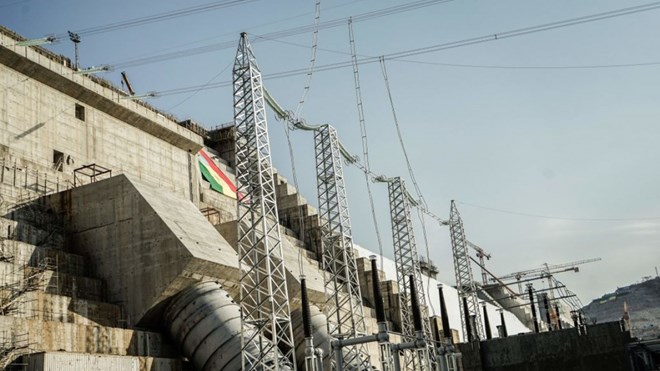
Friday June 7, 2024

The Ethiopian government disclosed that the Grand Ethiopian Renaissance Dam (GERD) has generated more than 2,700 gigawatt hours (GWH) of electricity during the past 10 months.
The Ethiopian Electric Power (EEP) said the mega hydroelectric power plant has surpassed its initial planned power generation targets in the past 10 months of the current 2023/2024 Ethiopian fiscal year that started on July 8, 2023, state-affiliated Fana Broadcasting Corporate reported late Wednesday.
advertisements
The dam registered around a 26 percent increase from the initial plan of 2,152.8 GWH, according to data from EEP.The EEP attributed GERD's increased power generation to the dam's ability to store more water, enabling its two operational turbines to function at full capacity.
With the new milestone, GERD contributed about 16 percent of the East African country's total 16,900 GWH of electricity generated during the reported period from various power generating plants across the country. When the remaining 11 units installed on the dam start producing power, it is expected to increase the country's current generation capacity by 83 percent.
The Office of National Coordination for the Construction of GERD announced in April that the project construction has reached over 95 percent. Once fully completed, the dam will have a generating capacity of 5,150 megawatts with an annual energy output of 15,760 GWH, according to the EEP.
The Horn of Africa country started to build the GERD on the Nile River in April 2011. The mega hydroelectric power project has since then been a major issue among the three Nile-bound countries of Ethiopia, Egypt, and Sudan.
Ethiopia frequently reiterates that the dam will power its development aspirations and boost its ambition to attain a lower-middle-income status in the near future. Meanwhile, Egypt and Sudan frequently express their concern that the dam would affect their share of the river waters.